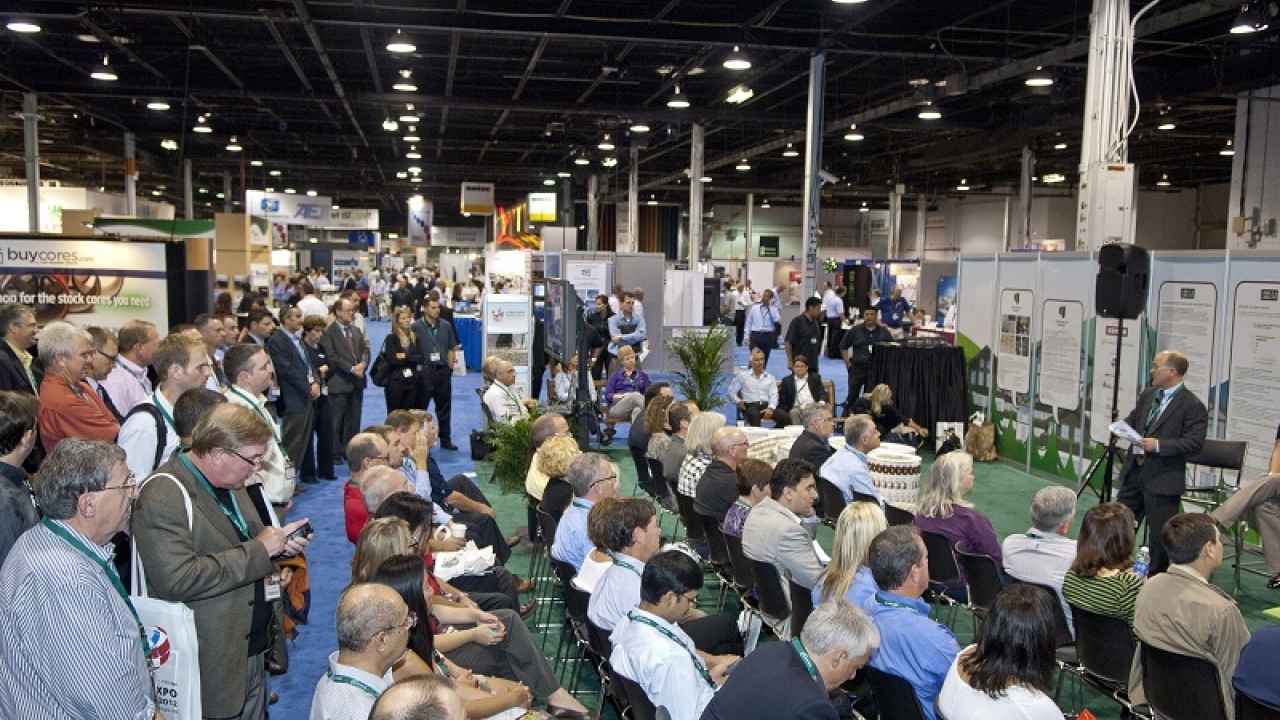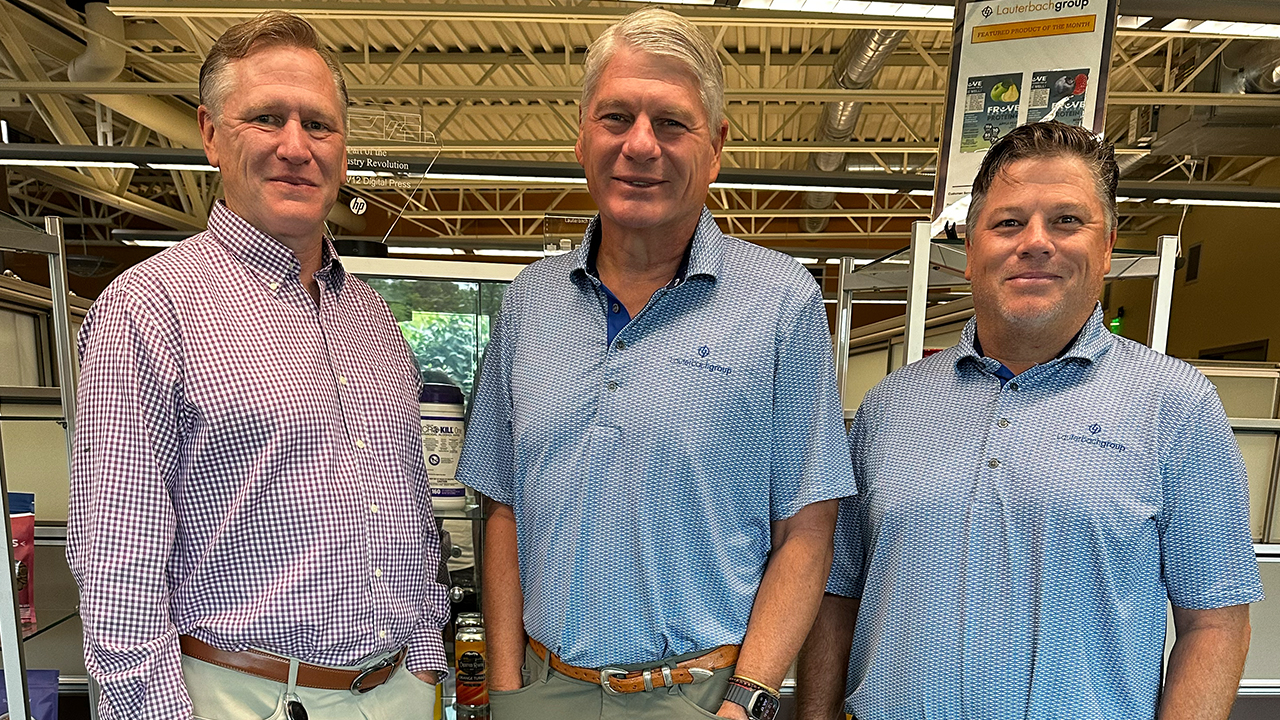TLMI Ecovillage: See how sustainability pays at Labelexpo Americas 2018

This year’s Labelexpo Americas will see the return of the Ecovillage, a feature area dedicated to learning the best environmental practices in the label and packaging industry. Within the TLMI-sponsored Ecovillage, there will be a session each day highlighting key aspects of sustainable label and packaging production.
The sessions will be led by experts who are on the front line of sustainability efforts. In addition to the sessions, Channeled Resources Group will be providing baling demonstrations each day of the show in the feature area with the collected matrix waste from show exhibitors. Green Bay, Wisconsin-based Convergen Energy will take the baled matrix waste and convert it into fuel pellets. These fuel pellets are a lower emission alternative to coal that has less carbon than traditional fossil fuels.
Converting matrix waste is something any company can look into incorporating to increase their sustainability and reduce their environmental impact. The Ecovillage at Labelexpo Americas is designed to help label converters to do so. Experts say that eco-friendly practices should be incorporated in every aspect of production, including what’s left behind; if not only for peace of mind, it can prove to be efficient and profitable.
As businesses are looking for ways to attract the purchasing power of the millennial generation, one of the best ways to do so is by becoming a more environmentally conscious company. ‘We reward brands with our dollars,’ says Danielle Jerschefske, a member of TLMI’s sustainability committee and sustainability columnist for Labels & Labeling.
Those dollars make a difference. A recent study by Neilson found that 75 percent of millennials are willing to pay more for products that are sustainably produced. Several large companies have already committed to increasing their packaging sustainability and reducing their environmental footprint. L’Oréal, PepsiCo, Amcor, The Coca-Cola Company, Walmart and many others have declared they will be using material that is 100 percent recyclable or compostable in their packaging by the year 2025. Labels & Labeling has reported that Nestlé and Unilever have made the same commitment, while General Mills says it will be sustainably sourcing all of its fiber packaging by the year 2020.
‘Our biggest industry accomplishment around sustainability is that we have progressed to asking how to improve, and are taking action with myriad positive examples,’ says Jerschefske. In the span of a few years, environmental concerns have gone from shaken off to being an important factor when evaluating business success in the printing industry. Jerschefske says, ‘Environmental discussions are no longer laughable; business leaders and their associates want to advance.’
This shift in mindset is the precursor for change. The next trends on the horizon are zero waste to landfill, and Life Cycle Analysis (LCA), which Jerschefske says are increasingly desired by end users.
Sustainability measures
As North America’s premier tag and label association, TLMI is committed to helping companies shrink their environmental footprint. TLMI’s environmental committee is dedicated to promoting sustainable label practices, and the association’s commitment to the earth is one of the key pillars outlined in its strategic plan. TMLI’s Ecovillage at Labelexpo Americas is just one of the ways the association is dedicated to helping the labeling and packaging industry achieve environmental best practices.
Additionally, one of the goals outlined in the strategic planning document was to reduce 30 percent of matrix and liner waste in the next three to five years. When it comes to implementing sustainability measures into a business plan, ‘We want to make sure we are educated about what is true, what is possible, and where we are at so our customers have accurate information to make the right decision,’ says Jerschefske. ‘Attendees and exhibitors can learn about what options are available for diverting our industry’s waste away from landfills and what production choices we can make to be more sustainable.’
Those who visit TLMI’s Ecovillage can learn about alternative matrix waste management, creative ways to recycle, and methods of reducing the environmental impact of production from companies who are already implementing sustainable measures.
Stay up to date
Subscribe to the free Label News newsletter and receive the latest content every week. We'll never share your email address.

